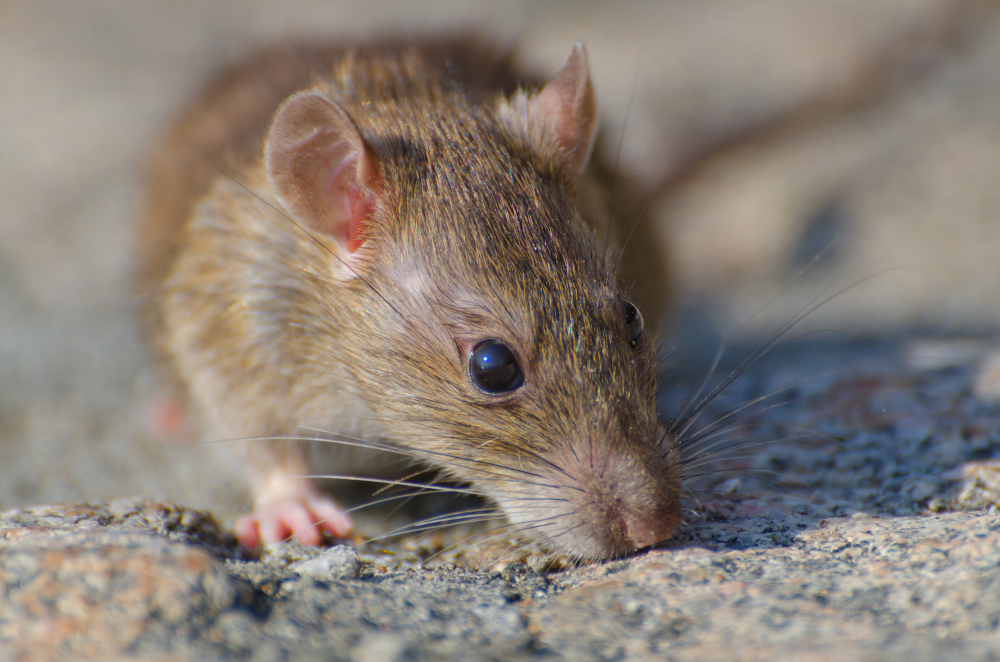Mice and rats are easily the most common pests that invade everywhere, including homes. But they have to come from somewhere, right? These rodents don’t just appear out of nowhere. They’re in your home for a reason, or rather, reasons. Like us, rodents need food, water, and shelter to survive.
Understanding rodent behavior is key to preventing them from settling in your living space.

The Search for Food and Water
Rodents are always on the hunt for their next meal. It just so happens that your home is easy pickings. Your kitchen and pantry, in particular, offer plenty of opportunities for these creatures. Crumbs on the floor, open bags of pet food, and unsecured garbage cans all attract mice and rats. They have a keen sense of smell and can detect food even through sealed containers if they’re not airtight.
Water is equally important for rodents. Leaky pipes, dripping faucets, and standing water in sinks or pet bowls provide the moisture they need to survive. Even small amounts of water can keep them coming back.
Shelter and Nesting Spots
Homes provide security for you and even for pests. Your home is warm, and there aren’t too many predators around. It’s basically a vacation spot for rodents.
Mice and rats look for quiet, hidden places to build nests. Common nesting spots include wall voids, attics, basements, and cluttered storage areas. They can squeeze through tiny holes, some as small as a dime, so no space is truly off-limits.
Rodents also prefer areas close to food and water sources. If your home offers everything they need, it becomes an ideal habitat for them.
How Rodents Enter Your Home
Mice and rats are excellent climbers and jumpers, but they mostly rely on finding gaps and cracks to slip inside. These openings can be around doors, windows, vents, pipes, and even utility lines. Since rodents can flatten their bodies to fit through very narrow spaces, even small holes in your foundation or walls are enough.
Once inside, they follow walls and edges, using their whiskers to navigate tight spaces. They leave behind droppings, urine, and scent trails that mark their paths and nesting sites.
The Risks of Rodent Infestations
Rodents are vectors of diseases and viruses. Their droppings and urine can cause myriad health problems. They also chew on wires, insulation, and wood, causing damage that may lead to costly repairs or even fire hazards.
To make matters worse, rodents are prolific breeders. A single pair of mice can mate enough times to produce dozens more in a few short months. If they are left to their own devices, you could be dealing with a legitimate home infestation in less than a year, and it could take weeks to take care of this when that happens, even with professional help.
Keeping Rodents Out: Practical Steps
The best way to avoid rodents is to remove what attracts them and block their entry points.
Keeping rodents out should be your top priority. Second, give them no reason to come inside your home. You’ll want to change your food storage practices by using tightly sealed containers and cleaning up crumbs and spills immediately. Don’t leave pet food out overnight, and don’t leave trash to pile up for days, especially inside your home.
Moisture also attracts rodents, so don’t wait around to fix leaks. If anything, you should be actively looking for moisture sources, like areas under sinks, around appliances, and in basements, for moisture issues. Reducing water sources makes your home less inviting.
Finally, use steel wool or metal mesh to block gaps around your home. Don’t use other materials. Rodents can easily chew through rubber or plastic.
Outdoor Maintenance to Deter Rodents
Your yard can either attract or repel rodents. Keep grass trimmed and remove piles of wood, leaves, or debris where rodents can hide. Store firewood away from the house and off the ground.
If you compost, use bins with tight-fitting lids and keep them away from the home. Bird feeders can also attract rodents, so clean up spilled seeds regularly.
When to Seek Professional Help
Rodent infestations can be tough to handle alone, especially if the problem is widespread or ongoing. Professionals can inspect your home, identify entry points, and use targeted treatments that reach nests and hideouts.
They also provide advice on preventing future infestations and can monitor your home to catch problems early. If you notice signs like droppings, gnaw marks, or strange noises, don’t wait. Getting expert help early saves time and money.
Building Habits to Keep Rodents Away
Preventing rodents is an ongoing effort. Regularly inspect your home for new gaps or leaks, keep food stored properly, and maintain a clean environment. Check your yard and remove potential nesting sites.
By staying vigilant, you can keep your home rodent-free. Understanding what attracts these pests and how they operate gives you the tools to protect your space.
Conclusion
Mice and rats invade homes because they find food, water, and shelter. By removing these attractions and blocking their access, you can prevent infestations. Regular cleaning, sealing entry points, and outdoor maintenance all play a role. If rodents do get inside, traps and help from a pest control company can remove them quickly.
Staying proactive is the best way to keep your home safe from these unwelcome guests.

